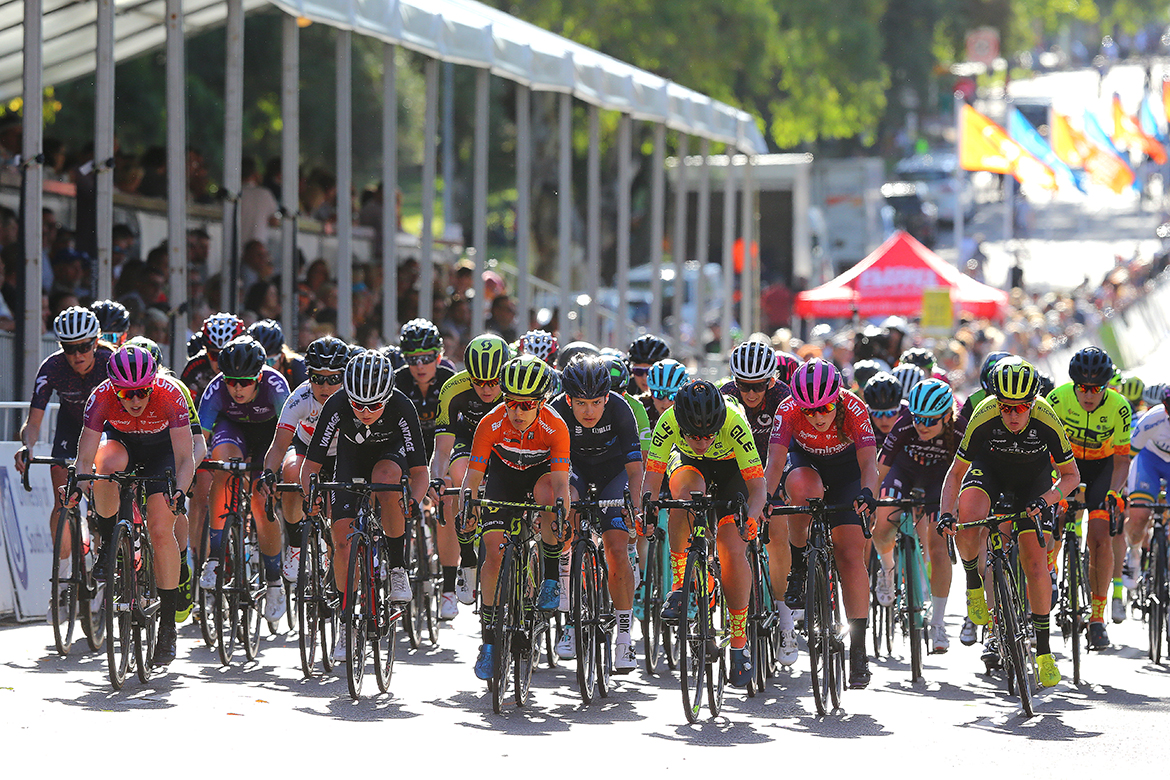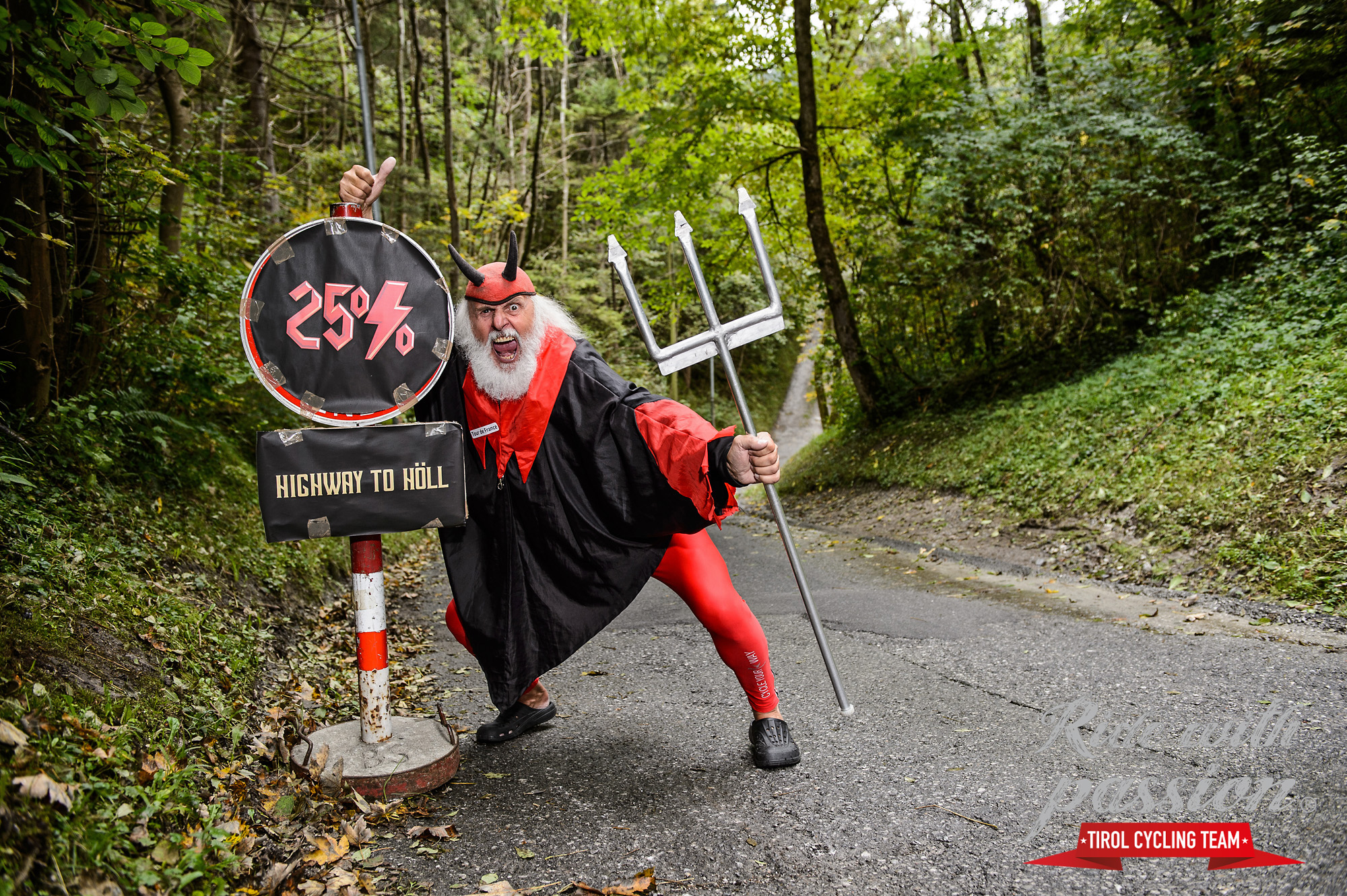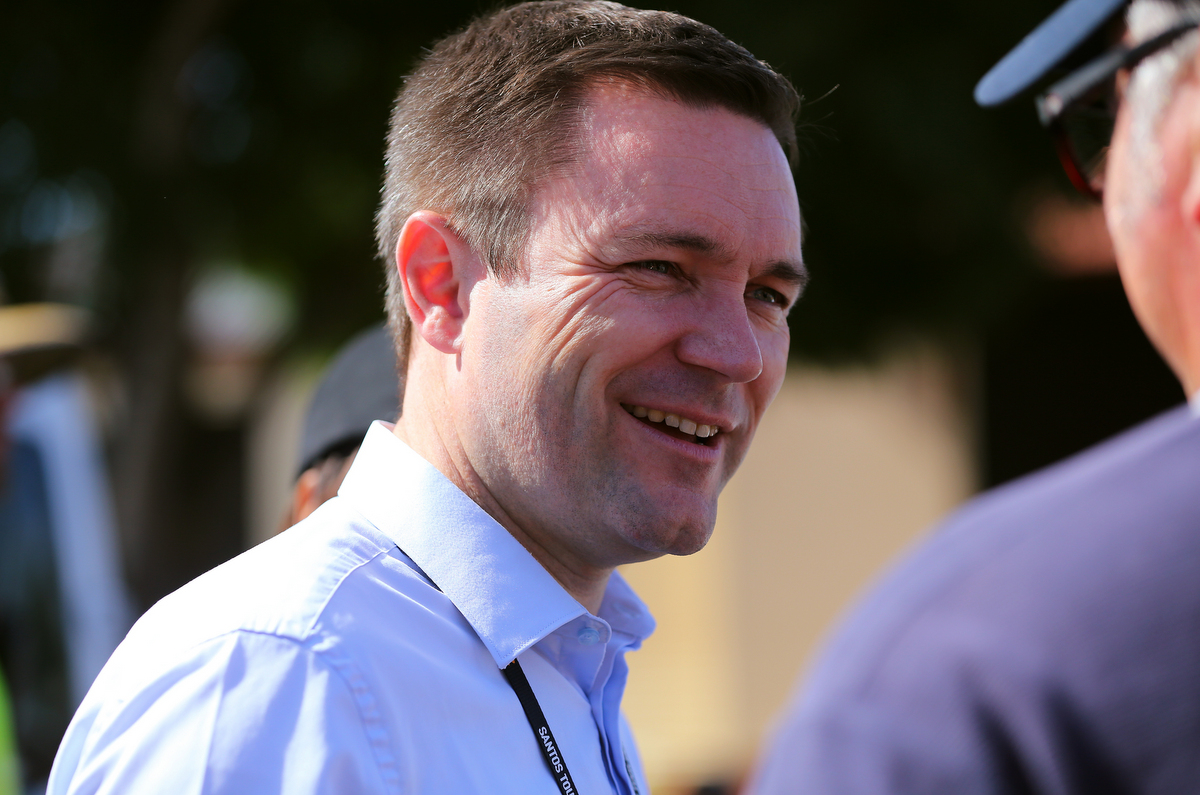UCI confirms minimum salary for 'division 1' women's teams in 2020
Lappartient says women's 'WorldTeams' to lead a new tiered system




The lack of parity in professional cycling has been at the forefront of the sport in recent years, particularly when it comes to live television coverage, course difficulty and pay, but some changes are on the way. UCI President David Lappartient confirmed to Cyclingnews that the sport's governing body is set to enforce a minimum wage for women's teams at the beginning of 2020 - which is part of the road map to the Agenda 2022.
CPA aiming for women's minimum wage by 2019
WorldTour Week: Support builds for women's minimum salary in 2018
UCI to roll out guidelines for 'more respectful' podium ceremonies
'I dream of a Paris-Roubaix Feminine' says UCI President
UCI regrets event conflicts on Women's WorldTour calendar
UCI President Lappartient commits to gender equality in Agenda 2022
UCI announce 2019 Women's WorldTour calendar
Van Vleuten: I was never in trouble at the Giro Rosa
Vital Statistics: Facts that show the differences in women's and men's pro cycling
Lappartient did not reveal how much women can expect to earn on an annual basis, but he did warn that not every woman who races for a UCI team will be entitled to a minimum salary, rather only those who are contracted to race with the highest tiered teams.
Currently there are 42 UCI Women's Teams, whereby the top 15 of those teams, according to the UCI World Ranking set at the start of the year, are automatically invited to compete in Women's WorldTour events. However, the UCI is also restructuring the teams into what will be a new tiered team system, which is also set to be implemented in two years.
Under the new tiered team system, riders who are under contracts with teams in the top-tier, namely the 'UCI Women's WorldTeams', will be entitled to earn a minimum salary. Lappartient did not elaborate on how many teams would make up the new UCI Women's WorldTeams.
"We are currently working on the introduction of a new category of teams - a 1st division, the UCI Women's WorldTeams - in women's professional road cycling," Lappartient told Cyclingnews.
"It is an ambitious project which will give more structure to women's cycling. This project involves all stakeholders, and we envisage its introduction in 2020. In particular, this change will go hand in hand with the introduction of a minimum salary for UCI Women's WorldTeams."
The minimum wage for the top two divisions of the men's tiered team system - WorldTour and Pro Continental - was set to rise in 2018 for the first time in five years, while there was no mention of a minimum salary for women's teams.
Get The Leadout Newsletter
The latest race content, interviews, features, reviews and expert buying guides, direct to your inbox!
WorldTour riders are currently entitled to a minimum salary of €38,115, and Professional Continental riders earn a minimum of €30,855 per year. Neo-pros, however, earn less at €30,839 at WorldTour and €25,806 on a Professional Continental team.
Implementing a minimum wage in professional women's cycling has long been discussed, but has yet to come to fruition. The CPA women's chapter said it is aiming for a minimum wage and tiered system by 2019. In addition, UCI Management Committee member Bob Stapleton told Cyclingnews last fall that he was in favour of creating and enforcing a minimum salary rule as soon as possible, even if it might start out at a low figure.
Lappartient did not confirm the details of the minimum salary, but it is unlikely that the wage for UCI Women's WorldTeams will equal that of the top-tier men's WorldTour teams.
Along the same thread, the UCI will be making additional changes to the minimum standards for prize money. Lappartient confirmed to Cyclingnews that there will be a minimum prize list for all races that are on the UCI Women's International Road Calendar, which will see a new 10 per cent increase for each year starting in 2019 to 2021.
"In the organisers' Financial Obligations, a document which specifies the minimum standards for prize money, we have included a 10 per cent increase across all these, each year, from 2019 to 2021 for races on the UCI Women's International Road Calendar," Lappartient said.
"In addition, an increase in the daily participation allowance for teams was approved at the UCI Management Committee meeting last January. This increase also includes an increase of three to four team staff members covered by the organisers.
"The improvement of women riders' financial conditions is among our Federation's priority areas of action (along with safety, media coverage and teams' welcome at events) to develop the UCI Women's WorldTour in the years to come."
In June, the UCI Management Committee met for three days in Arzon, France, where members debated and then validated the Agenda 2022. On the agenda were a number of structural initiatives concerning the sport governing body's future role in gender equality within the sport.
The UCI promised to enforce a strict Code of Conduct to be signed by all employees of UCI Women's Teams, with the aim of raising awareness of harassment. Lappartient outlined how riders or staff members of a team are meant to interpret the code and how to make any complaints.
"To be precise, it is a declaration of recognition of ethical principles which was voted unanimously by the UCI Management Committee at the urging of the UCI Women's WorldTour Committee, on which all players in women's professional road cycling, notably teams, are represented," Lappartient said.
"From a regulatory point of view, the declaration is based on the UCI Code of Ethics, introduced in 2016. Any licenced rider, victim or witness of a violation of the Code, can refer either to the UCI Ethics Commission or to the Cycling Anti-Doping Foundation (CADF), depending on the nature of the violation. This declaration will be compulsory and will be included in the UCI Women's Teams Registration Guide for the 2019 season. In the near future, the declaration should apply to all UCI teams."
Podium hostesses
There has been a recent push to remove podium hostesses from post-race ceremonies, particularly after the Professional Darts Corporation (PDC) removed 'walk-on women' and Formula 1 announced that it would replace 'grid girls' with 'grid kids' this season. Tour de France organisers, ASO, initially said they would consider ending the use of 'podium girls', but they are currently included in the podium presentations for the stage winners and classification leaders at the conclusion of each stage. Events such as the Tour of California have removed the dated tradition from their podium ceremonies.
Lappartient noted in March that the UCI would not follow the PDC or Formula 1 by entirely doing away with the long-running tradition of using podium hostesses, whereby models guide the ceremony, hand out awards, help dress the athletes in special jerseys and then give them a 'podium kiss' on either cheek in front of professional race photographers. He said that he would rather see a compromise made to have a more respectful protocol while retaining cycling's podium customs.
This protocol will be part of the UCI's new Charter to promote gender equality in cycling. The Charter will begin with a gender equality policy within the UCI's own administration, notably with regard to equal treatment among all its staff members, in particular when it comes to hiring and salaries.
The issue of podium hostesses falls into the second category, whereby the UCI Management Committee approved several measures designed to guarantee gender equality during podium ceremonies at the UCI World Championships.
The policy will require UCI approval for all outfits worn by hosts and hostesses, or an equal representation of the two genders in these roles, will form part of the UCI World Championships Organisation Guides, and will come into effect from the 2018 UCI Road World Championships in Innsbruck-Tirol (Austria).
"There will be an equal number of men and women on the podium, UCI approval of outfits, and officials will be limited to shaking hands with the athletes, regardless of their gender," Lappartient said.
"Our International Federations wishes to set an example in the promotion of gender equality principles for all cycling's stakeholders, be they National Federations, event organisers or professional teams. Other areas will be included in the charter in the years to come."
Highway to Höll, Paris-Roubaix and the Tour de France
There has been some discussion among the women's peloton concerning the women's courses differing from the men's, specifically because they do not include the 'showstopper' climbs at championship events.
Cecilie Uttrup Ludwig of the Cervelo Bigla team expressed her frustration in a recent blog for Voxwomen about the women's course at the upcoming World Championships in Innsbruck, which does not including the same heavily talked-about "Hell Climb" to Gnadenwald.
Lappartient responded by saying that given safety and road closure concerns, the city permitted only one time up the ascent. The UCI decided that it should be included in the men's race on the final Sunday.
"Despite its desire to include the Hell Climb in the Women Elite and Men Under 23 road races, the UCI and Innsbruck 2018 Organising Committee have taken into account the population's concerns over length of road closures and the recommendations of the city's security services to limit the use of the climb to a single passage on the final Sunday of the 2018 UCI Road World Championships for the Men Elite Road Race," Lappartient said.
At the World Championships, the elite men's 265-kilometre road race will feature close to 5,000 metres in elevation, with the 'Highway to Höll' set to be the decisive final steep climb of the race. The elite women's road race will start in Kufstein and head west to finish in Innsbruck-Rennweg, for a total of 156.7km. They will race a 90km loop followed by three shorter circuits of 23.9km each. The course has 2,413 metres of elevation gain.
"We are nevertheless convinced that the route decided on for all other categories, with the demanding 8km-long Igles Climb, which has an average gradient of 6 per cent is a demanding circuit which will reward both excellent national team tactics and strong individual climbers," Lappartient said.
"The total elevation gain for all categories will ensure a level of competition and spectacle that will satisfy the athletes, broadcasters, sponsors and the large public expected along the roadside in a beautiful alpine setting of the Innsbruck-Tirol region."
The UCI announced the 2019 Women's WorldTour, which will include 23 events (52 race days) with minor changes to the dates of each race to avoid the problematic overlaps that happened this year, namely between the Amgen Women's Race and the Emakumeen Bira in May.
In recent years, women's stage races are roughly three to six days, and currently the Giro Rosa is the only event that stands out at 10 days long and includes major climbs that are also used in the men's Giro d'Italia, such as the Zoncolan, Mortirolo and Stelvio.
When it comes to the Women's WorldTour, however, don't expect longer and more challenging stage races or the possibly of a Tour de France that is longer than the current one-day La Course by Le Tour de France, or even a version of Paris-Roubaix, at least not next year.
Lappartient gave a vague response when asked about the possibility of a future Tour de France and Paris-Roubaix for women, although he did say he dreams of a Paris-Roubaix Feminine.
"We are always open to discussion with organisers to optimise the UCI Women's WorldTour," he said.
"Nevertheless, after three seasons of expanding the series, the teams say they are satisfied with the current format which, with no more overlapping of events, enables them to ensure better participation at all the races."
When it comes to media, 15 of the 23 events on this year's Women's WorldTour will be broadcast live, as have other events that are outside of the top-level calendar. Many events offer a summary highlights videos following each stage or event, along with improved social media standards and press packages, making it easier for fans and press to follow the races. Though there are still just under half of the events that do not offer a live stream of some kind, and this is at a time when cycling fans can easily watch every GrandTour and WorldTour event, and even lower level men's races, on several live streaming platforms.
"The [Women's WorldTour] series seen its audio-visual coverage develop considerably. The number of the series’ television viewers increased from 80 million for the 2016 season to 124 million in 2017 (+55%)," Lappartient said. "The number of broadcast hours more than doubled to reach 650 hours, compared to 310 hours the previous year.
"Events such as Trofeo Alfredo Binda, Gent-Wevelgem in Flanders Fields or the Giro d’Italia Internazionale Femminile are covered live [live delayed for the Giro]. Organisers are required to ensure the race is broadcast either live, by livestreaming or through extracts provided to free channels."
Women who race on the top level of professional cycling can expect a long-overdue minimum wage in two years, policies that promote the awareness of gender equality and harassment, and continually improving year-on-year media coverage of the Women's WorldTour, and other top UCI women's races.
But despite these encouraging changes, the push for progress in gender equality within professional cycling seems more like a slow grind, as the sport is still far from achieving parity.

Kirsten Frattini is the Deputy Editor of Cyclingnews, overseeing the global racing content plan.
Kirsten has a background in Kinesiology and Health Science. She has been involved in cycling from the community and grassroots level to professional cycling's biggest races, reporting on the WorldTour, Spring Classics, Tours de France, World Championships and Olympic Games.
She began her sports journalism career with Cyclingnews as a North American Correspondent in 2006. In 2018, Kirsten became Women's Editor – overseeing the content strategy, race coverage and growth of women's professional cycling – before becoming Deputy Editor in 2023.